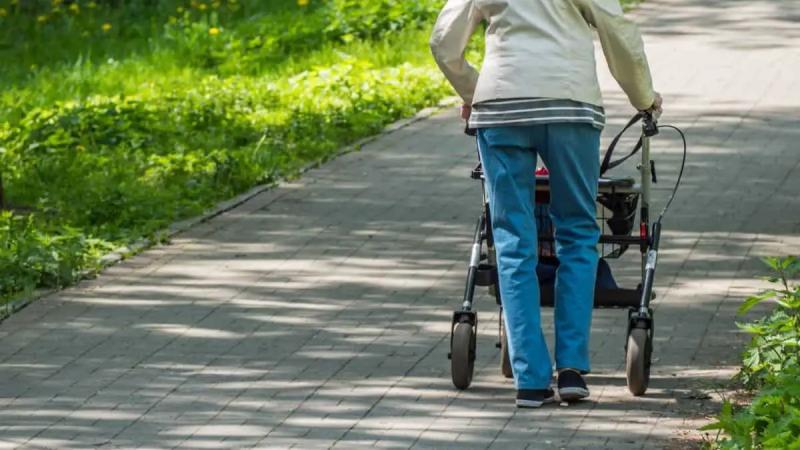The Ultimate Guide to Walkers for Elderly: Enhancing Mobility and Independence

As we age, maintaining mobility becomes increasingly
important for preserving independence and quality of life. Walkers for elderly
individuals play a crucial role in this endeavor, providing stability and
support for those who need assistance with walking. This comprehensive guide
will explore the various types of walkers available, their benefits, and key
considerations when purchasing one. We'll also touch on some of the best
options available on the market to help you make an informed decision.
Understanding the Importance of Walkers for the Elderly
Walkers for elderly individuals are designed to provide
support and stability, helping seniors maintain their balance and mobility.
They are particularly beneficial for those with disabilities, recovering from
surgery, or dealing with conditions that affect their balance and coordination.
By offering a secure means of mobility, walkers can significantly enhance the
independence and confidence of elderly users.
Types of Walkers for Elderly Individuals
There are several types of walkers available, each catering
to different needs and preferences. Here are the main categories:
1. Standard Walkers
Standard walkers are the most basic type, featuring a simple
frame that the user lifts and moves forward. They are ideal for those who
require maximum stability and are able to lift the walker with each step.
2. Two-Wheeled Walkers
These walkers have two wheels on the front legs, making them
easier to push forward without lifting. They provide a balance between
stability and ease of movement, suitable for those who need some assistance but
still have some strength and coordination.
3. Four-Wheeled Walkers (Rollators)
Rollators are walkers equipped with four wheels, a seat, and
often hand brakes. They offer maximum mobility and are perfect for those who
need a little support while walking but want to move quickly and easily. The
seat provides a convenient resting place when needed.
4. Foldable Walkers
Foldable walkers are designed for easy storage and
transport. They can be collapsed when not in use, making them an excellent
option for those who travel frequently or have limited storage space.
Key Features to Consider
When selecting a walker for an elderly individual, several
factors should be taken into account to ensure the best fit and functionality:
1. Walker Price
Walker prices can vary significantly based on the type,
features, and brand. It's essential to find a walker that offers the necessary
features within your budget. While more expensive models may offer additional
conveniences, many affordable options provide excellent support and durability.
2. Adjustability
An adjustable walker ensures a proper fit for the user. Look
for models with adjustable height settings to accommodate different user
heights, ensuring comfort and optimal support.
3. Weight and Portability
Lightweight walkers are easier to maneuver and transport. If
the user frequently travels or needs to store the walker in small spaces, a
foldable and lightweight model is ideal.
4. Weight Capacity
Ensure the walker can support the user's weight. Most models
indicate the maximum weight capacity, and it's crucial to select one that
comfortably supports the user without compromising stability.
5. Additional Features
Some walkers come with added features like padded seats,
storage pouches, or hand brakes. These extras can enhance convenience and
comfort, making the walker more user-friendly.
Benefits of Using Walkers for the Elderly
Walkers offer numerous benefits that significantly impact
the quality of life for elderly users:
1. Improved Mobility and Independence
Walkers provide the necessary support to move around safely,
allowing seniors to maintain their independence and engage in daily activities
without relying on others.
2. Enhanced Safety
By providing stability and balance, walkers reduce the risk
of falls and injuries, which are common concerns for elderly individuals. This
increased safety allows users to move confidently.
3. Increased Confidence
Knowing they have a reliable support system can boost the
confidence of elderly individuals, encouraging them to stay active and
participate in social activities.
4. Better Posture and Reduced Strain
Walkers promote better posture and reduce the strain on
joints and muscles. This ergonomic support helps alleviate discomfort and
prevent further mobility issues.
Top Picks for Walkers for Elderly Individuals
Here are some highly recommended walkers that offer
excellent features and value for elderly users:
1. Drive Medical Deluxe Two-Button Folding Walker
This standard walker is lightweight, foldable, and features
adjustable height settings, making it a versatile and affordable option.
2. Medline Heavy Duty Bariatric Folding Walker
Designed for heavier users, this walker offers a high weight
capacity, sturdy construction, and adjustable height, providing robust support
and durability.
3. Hugo Elite Rollator Walker
The Hugo Elite Rollator features a padded seat, backrest,
and storage pouch, making it a comfortable and convenient choice for those who
need a four-wheeled walker.
4. Able Life Space Saver Walker
This ultra-lightweight and foldable walker is perfect for those who need a portable option. It easily collapses for storage and transport, offering excellent convenience.
Choosing the right walker for patients individual can make
a significant difference in their daily life, enhancing their mobility, safety,
and confidence. By considering the different types of walkers available, key
features, and the specific needs of the user, you can find the perfect mobility
aid. Whether you're looking for a standard walker, a rollator, or a foldable
option, there are plenty of high-quality models to choose from.
Post Your Ad Here
Comments